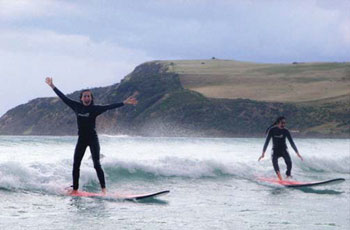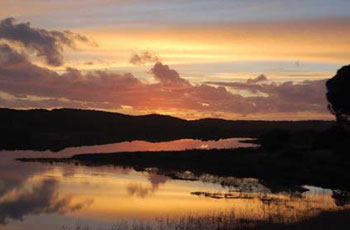The Head of Outdoor Education, Hayne Meredith, has lyrically and concisely drawn to the attention of Wesley parents and students the crucial purpose of Wesley’s Outdoor Education program, and the value of the camp experience (be it Lochend, Mallana or Chum Creek) in shaping young lives, and giving them an appreciation of what gifts are there for us in the natural environment. Discovering harmony between self and the world remains one of our chief values. Hayne wrote two editorials to acknowledge World Environment Day, the first of which, linking the various offerings of the Wesley outdoor camps, will be reproduced in full. In the second, Hayne reflected on some of what he sees as “one of the dangers of modern life”:
Whole days can be spent indoors…We can become so absorbed by computer and TV screens and distracted by phone screens that the sun can rise and set, and we might not know how the real world unfolded in between. Relationships wither when one side no longer sees or appreciates the other. We cannot care, at any level, for a world that we are oblivious to.
On [Environment Day] – and all days – keep it simple, pay attention, look for beauty. Remember the relationship.
These thoughts are always in the forefront of Hayne’s thinking about, and planning for, the outdoor experience enjoyed by our students in three different locations. His own words tell the separate stories. Play at its best.
Swirling storm systems, deep in the Southern Ocean, generate the long lines of swell that roll into the beaches and bays near our Lochend campsite. The swells have moved freely, effortlessly, over many days and for thousands of kilometres. The coast must be a complete surprise. The draf of the shallowing sea floor wheels them around the headlands, slows them down and steepens them up until they peak and pitch onto a beach.

It is here. in those final seconds of free existence, that some will interact with our Year 8 students, and the surfboards they have just been taught how to use. Each hopeful surfer lines their board up and takes a backward glance to get the timing right. With some fast paddling, the board will lift and accelerate, and they are away. Some immediately leap to their feet, some stay prone, and many, at first, will do something wobbly in between. Those few seconds of speed, of sliding along a foamy wall of water in horizontal freefall, are purely exhilarating. The fun of seeing others triumph and stand tall, or flail and fail, is infectious.
At Chum Creek, branches, sticks and twigs lie scattered across the forest floor, pausing between their abrupt fall and a slow rot. Year 4 students scour the forest, looking for suitable shapes and sizes to gather and construct into shelters. Cubby building is a favourite activity for these young children. Some cubbies are carefully designed, the final form planned from the start. Some clearly evolve, as problems or potentials emerge over time, while others seem somewhat haphazard. Even the crudest, though, is a created space, and in that sense at least, is much more than the found material, the design or the physical measurements. These are imaginative spaces, both in how they are formed, and how they make their builders feel. In that sense, they are all magnificent.

At Camp Mallana, Year 6 students pull out a wad of cotton-wool, hunker down around a cold fire pit, and strike steel to flint. Sparks fly over the cotton tinder. If they can catch just one, and they surely will, a fire and a hot meal will follow. So will all the interactions that flames draw out of the people gathered around them - conversations, negotiations, laughter, the stories and the quiet contemplations. Humans have always found fire useful, fascinating and a powerful gathering force.
These are all examples of play at its best – simple and engaging, safe and exciting. And they are much more than just “play”. Watching any of these, we are watching children at their best – a perspective that we, as parents and teachers, probably wish we could summon up more often!
They are absorbed in each moment, each challenge. They learn fast and test themselves, again and again. They are finding the joy of fitting in - of dancing - with natural forces and phenomena, rather than fighting them. They are experiencing the delight of communal interaction, and the power that comes with working with others, rather than against them.
They are being the sort of people that we can be very proud of, the sort of people we really need in this world. Perhaps we all should play more?
